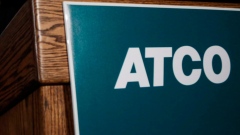Sep 1, 2023
Meta, Google respond to Canada’s proposed Online News Act regulations
, BNN Bloomberg
Meta will likely bargain and reinstate news on its platforms in Canada: Analyst
Meta Platforms Inc. said Friday that draft regulations for Canada’s Online News Act will not change its policy of blocking news in the country, while Google said it is reviewing the regulations.
Minister of Canadian Heritage Pascale St. Onge announced proposed regulations for implementing the Online News Act on Friday. The draft rules are subject to public consultation, according to a news release, with final regulations to come after that review process.
Rachel Curran, the head of public policy at Meta Canada, told BNNBloomberg.ca on Friday that the regulatory process is not sufficient to address issues the company has with the Online News Act, which would force tech giant and other companies to pay Canadian news producers for links posted to their platforms.
“As we have communicated to the government, the regulatory process is not equipped to address the fundamentally flawed premise of the Online News Act,” Curran said.
“As the legislation is based on the incorrect assertion that Meta benefits unfairly from the news content shared on our platforms, today’s proposed regulations will not impact our business decision to end news availability in Canada.”
After Meta blocked news content, several major outlets including Bell Media pulled their advertising from the platform.
Google said the company would take time to determine if its concerns about the legislation were addressed in the draft regulations.
“We’re carefully reviewing the proposed regulations to assess whether they resolve the serious structural issues with C-18 that regrettably were not dealt with during the legislative process,” a Google spokesperson told BNNBloomberg.ca in an emailed statement on Friday.
HOW MUCH WOULD THE COMPANIES PAY?
In order to meet the proposed criteria under the Online News Act, federal officials estimated Google would have to offer around $172 million in compensation and Meta would have to offer $62 million, The Canadian Press reported.
The regulations also stated that compensation from tech companies could be either monetary or non-monetary.
The government said the draft regulations aimed to clarify which platforms the Online News Act will apply to, and which now need to seek an exemption from the compulsory bargaining process.
In order to receive an exemption under the law, the regulations stipulate that a tech platform must enter an agreement with the government aimed at “supporting the diverse production of Canadian news” across the country.
To qualify for an exemption, the government said the total value of the agreement will need to meet a specific threshold , though that threshold was not specified in the release.
“Canadians rely on digital platforms to access their news and information, but these tech platforms have to act responsibly and support the news sharing they and Canadians both benefit from,” St-Onge said in the news release.
She argued that the Online News Act will compel “dominant platforms” to bargain with large and small news organizations alike.
“The consultation on the proposed regulations today helps to provide clarity for platforms and news organizations while opening a dialogue toward real results,” she said.
BCE is the parent company of BNN Bloomberg through its Bell Media division.
With files from the Canadian Press.






